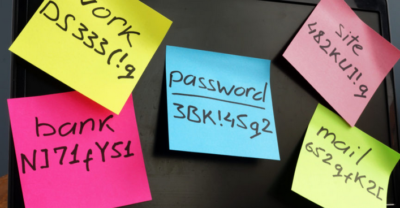 By Clair Nash
By Clair Nash
April 6th, 2020
BURLINGTON, ON
As our online life continues to grow so do the risks involved in managing so much of our lives through digital tools, it has become increasingly important to learn how to protect your private information online, at all times.
We have been continuously integrating digital into daily life, moving from emails to online banks, even medical appointments can now happen through the web, so what can you do to stay safe but still enjoy all these wonderful tools at your disposal.
Choose carefully
Know where you are going online, the kinds of websites you visit and the apps you download, having the right information to make choices is a pretty good starting point for safety.
So if you are planning on gaming online pick the right site with secured online casino payment, sites with plenty of reviews, don’t trust mass emails sent out to you, verify your bank’s address and avoid clicking on links sent by friends and family. Common sense is your first line of defense.

This is not a secure password system.
Passwords matter, a lot
This one is huge, and your second line of protection. Your passwords should be hard to guess, different for each account and they must never ever be shared.
How to pick a password? Avoid the common birthdays, home addresses and any easy hint, it is always better to go with random numbers, names, and places. Use a password manager to keep track of them all, change them regularly and stay ahead of the threat.
Update everything
Those pesky update reminder on your computer or your phone is there to do more than just annoy you, updating your device means more protection for your information.
Every new software development in operating systems helps to better security, so while it may be a little annoying to have to do it so often it is a small price to pay to stay safe. So next time you see that update notification come up just do it and save yourself some heartache.
Back up your information
Whether you use cloud storage or actual external drives backing up your data can help you stay safe in case of theft or when you lose a device somewhere.
Having your data copied somewhere means you can remotely deactivate devices even if you lose that information, protecting you and making it impossible for someone else to use your device. Literary saved data is safe data.
Don’t overshare!
One of the biggest problems for staying safe online right now is social media sharing, the more people know about you and your life the more exposed and vulnerable you are to identity theft and hacking.
So keep your sharing to the minimum, the internet does not need to know every move you make, the places you visit, the things you buy, friends you have and your mom’s birthday, for online purposes keeping quiet can keep you safer.
Smartphone use
The smartphone is by far the most used device right now, so they store within them incredible amounts of our information.
Intelligent, clean, conscious use of your smartphone makes your security a priority and saves you from unexpected threats, here are some other handy tips to keep your smartphone safe.


















